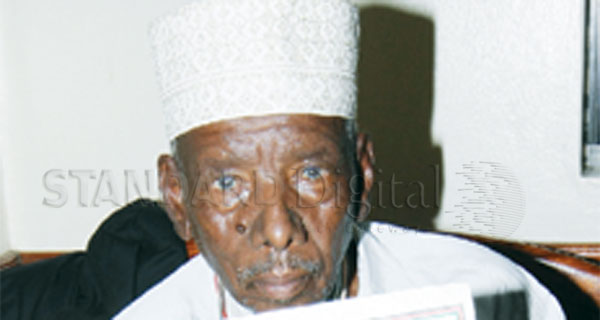×
The Standard e-Paper
Fearless, Trusted News
 |
| Mohammed Nur Ali. [PHOTO: FILE/STANDARD] |
By ALLY JAMAH and LONAH KIBET
Wajir, Kenya: By the time he was hanging up his boots at 84 years old, Mohammed Nur Ali from Wajir County was perhaps the oldest civic leader in Kenya.